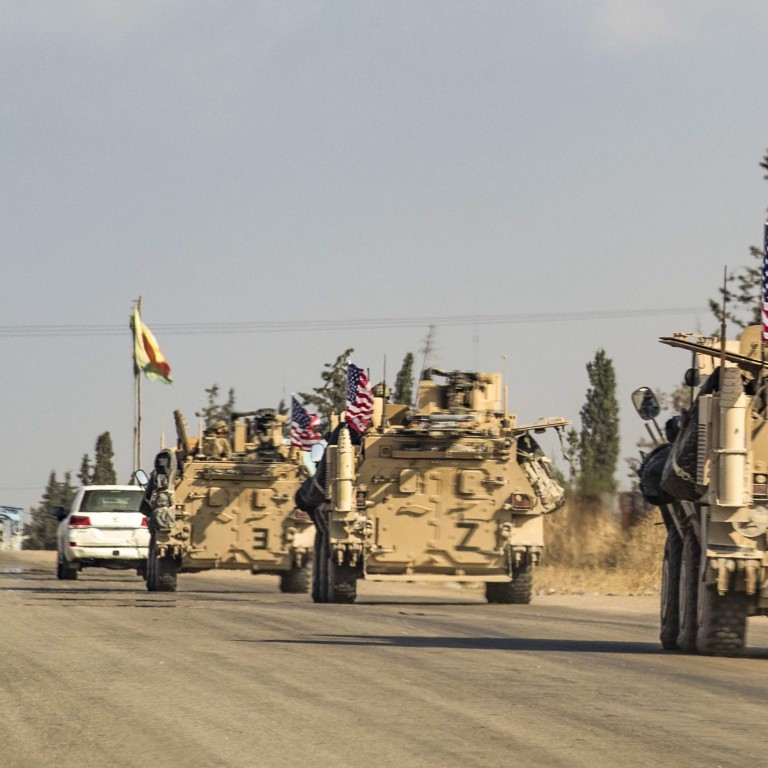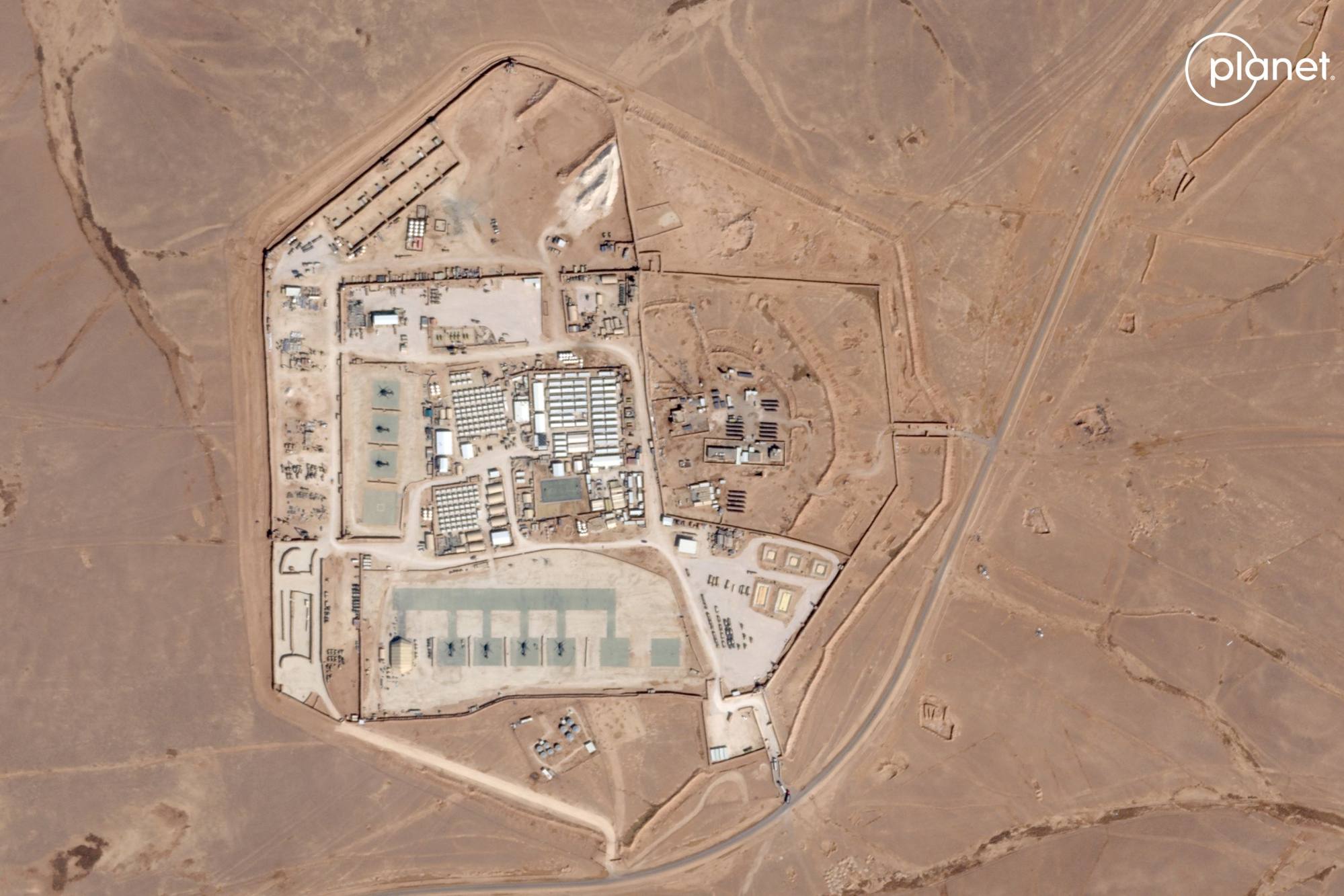
Rockets fired from Iraq at US-led coalition base in Syria
- Attack by ‘outlaw elements’ in Iraq was the first major one against coalition forces in several weeks
- A January 28 drone attack killed three US soldiers in the Jordanian desert on the Syrian border
Rockets were fired late Sunday from northern Iraq at a military base in Syria housing a US-led coalition, according to Iraqi security forces.
The anti-jihadist coalition said one of its fighter jets in Iraq had “destroyed a launcher in self-defence after reports of a failed rocket attack” near a base in northeast Syria.
“No US personnel were injured,” it added in a brief statement.
It is the first major attack against the coalition forces in several weeks.
It comes days after Israel reportedly responded to an Iranian attack with a drone strike on the Islamic republic, amid tensions fuelled by the Gaza war.
Iraqi forces had earlier said they launched a major search operation in the northern Nineveh province and found the vehicle used in the attack.
What are US troops doing in the Middle East and where are they?
The statement from the Iraqi security forces accused “outlaw elements of having targeted a base of the international coalition with rockets in the heart of Syrian territory”, at around 9.50pm.
The security forces burned the vehicle involved in the attack, the statement added.
Rami Abdel Rahman, director of the Syrian Observatory for Human Rights war monitor, said several rockets had been fired “from Iraqi territory at the Kharab al-Jir base”, where US forces are stationed.
He accused the Islamic Resistance in Iraq, a loose alliance of Iran-backed groups, of staging the attack.
The group has claimed most of the attacks on US forces carried between mid-October and early February.
Following a series of rocket attacks and drone strikes by pro-Iran armed factions against US soldiers deployed in the Middle East over the winter, there had been several weeks of calm.

The Islamic Resistance in Iraq has said it is acting in solidarity with Palestinians and out of anger at US support for Israel in the Gaza war.
In response, the US military struck dozens of targets in Syria and Iraq, aiming for pro-Iran forces, and drawing criticism from the governments of both countries.
The United States has around 2,500 soldiers stationed in Iraq and nearly 900 across the border in Syria as part of an international coalition created in 2014 to fight Islamic State group (Isis).
Sunday night’s rocket attack came against the background of increasing tension in the region, with a flare-up between Iran and Israel.
Early on Saturday, an explosion at an Iraqi military base killed one person and wounded eight others.
Security forces said the blast hit the Kalsu military base in Babylon province south of Baghdad, where regular army, police and members of Iraq’s Popular Mobilisation Forces, or Hashed al-Shaabi, are stationed.
CENTCOM, the US military command in the region, denied involvement in a strike there. The Israeli army refused to comment.
The US was among the first to cut ties with Assad over the repression of anti-government protests that sparked war in 2011, and many Western and Arab states also severed relations.
However last year Syria returned to the Arab fold, seeking better ties with wealthy US-allied Gulf states, in the hope they can help fund reconstruction – although Western sanctions are likely to deter investment.
“America is currently illegally occupying part of our lands … but we meet with them from time to time, although these meetings do not lead to anything,” Assad said in an interview with a Russian-backed official from Georgia’s breakaway region of Abkhazia, published by Syria’s official Sana news agency.
Assad did not give further details about who was involved in the meetings, or what was discussed.
“There is always hope: even when we know there will be no results we must try,” he said when asked about the possibility of mending ties with the West.

.png?itok=arIb17P0)